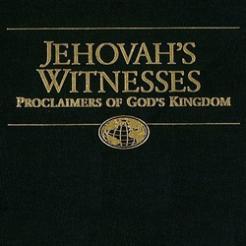A judge has ruled not to allow a Jehovah’s Witnesses charity more time to appeal against a Charity Commission statutory inquiry.
At a tribunal last week, judge Alison McKenna said the Watch Tower Bible and Tract Society of Britain, had caused prolonged delays to the regulator’s investigation leading to “ongoing risks” to children.
The Charity Commission initially opened an inquiry into the charity in May 2014 to investigate if adequate safeguarding procedures were in place, following revelations that trustees of the charity had allowed a convicted paedophile to question his victims.
Jonathan Rose, an elder of the New Moston congregation, was jailed for nine months for abusing two women when they were young girls, the Manchester Evening News reported.
According to the paper, after his release in March 2014, a series of “disfellowship” meetings were held to decide whether Rose should remain a member of the organisation, and the women were asked to recount their ordeal. At one meeting, Rose was allowed to ask the women questions.
The regulator said at the time that it has had “ongoing serious concerns” about the charity and had previously opened regulatory compliance cases into the Watch Tower Bible in July 2013 and the New Moston congregation in December 2013.
Last week, judge McKenna, said the charity was given 42 days to make an appeal but overran the allocated time period and instead called for a time extension while applying for a separate judicial review at the Administrative Court.
Delays
McKenna said the charity’s delay of “over six months” in making the extension application to the tribunal “elongated unreasonably the period of time” in which the Commission would be “delayed from carrying out its inquiry pending determination of a challenge to its decision”.
“I give weight to the fact that the [Commission’s] inquiry and production order relate to safeguarding matters which could… logically concern on-going risks to people who are still children”, she said.
McKenna said: “it seems to me that the continuation of the court proceedings was [the charity’s] main priority at that time… I also conclude that there was not a good explanation for it”.
The judge noted that the charity would not be able to challenge the decisions of the Commission if its application “to proceed out of time is not allowed”.
“I accept that that is a serious matter,” she said. “However, it seems to me that the charity, in adopting the litigation strategy it did, must have factored that risk into account.
“I also note that the [Commission] has already delayed its inquiry and the enforcement of compliance with the production order for over six months while the charity mounted a challenge to its decisions, in the forum of its choice. It does not seem to me that it would be fair and just to allow the charity to start new proceedings in the tribunal now and thus and delay matters further, having taken the course that it did.
“In these circumstances, I do not consider that it would be appropriate to… extend time to allow this application to proceed out of time and I now refuse the charity’s application.”
The Watch Tower was approached by Civil Society News for comment but did not respond by the time of publishing.
Comments have been disabled on this story.









